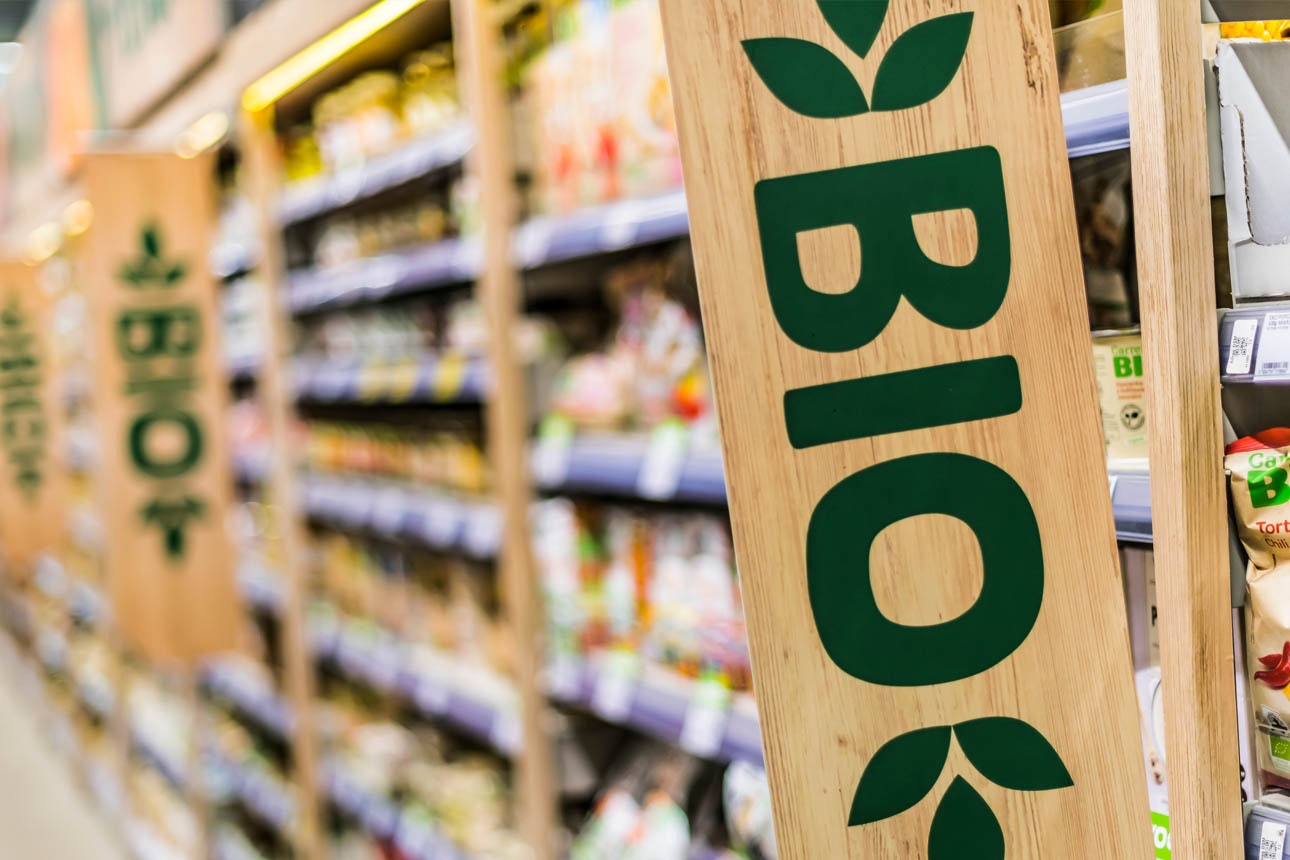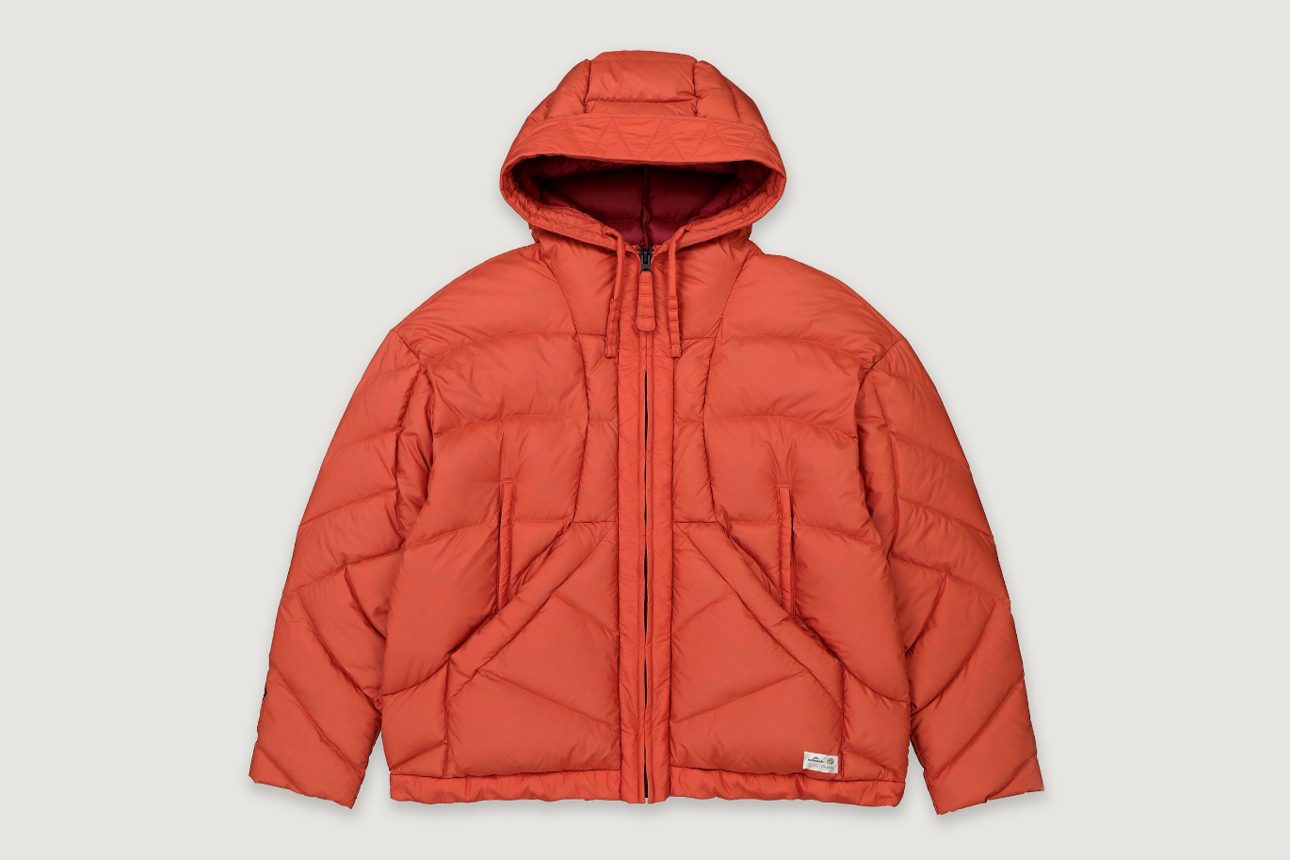
By Vanessa Pratley
Investigative Journalist | Kaipūrongo Whakatewhatewha
A Consumer NZ sweep of recycled polyester claims made by some high-street retailers reveals greenwashing is getting harder to spot.
Polyester has been a mainstay in fashion since the 1960s – it’s cheap and can be used in a variety of ways. The fashion industry just can’t seem to quit using polyester.
More recently, retailers have started to acknowledge polyester’s environmental impact. But instead of giving up the petrochemical-based textile, it seems many brands have switched to recycled polyester. It can do everything polyester does, but is it “better” for the planet?
A lack of supporting evidence
Today, it’s not hard to find something “made from recycled polyester”. Whether you shop at The Warehouse or Glassons, it’s likely you’ll come across something that boasts recycled content. But can you trust the claims?
Under the Fair Trading Act (FTA), a business must have reasonable grounds to make a claim. In the case of retailers claiming garments have recycled fibre content, they must have evidence to prove it. If they don’t, they may be breaching the FTA, whether or not the claim is misleading or false.
The Commerce Commission told Consumer it’s done some work in this area. In particular, it has “looked into environmental claims made in the fashion sector” and “[issued] advice to those businesses around compliance under the Fair Trading Act, including presentations to marketers.”
Yet our recent sweep revealed potentially unsubstantiated claims and misleading conduct are still going unchecked.
Garments we looked at

The Warehouse H&H Women’s Recycled Puffer Jacket - $45
Recycled content claim: Recycled polyester.
The Warehouse said: A spokesperson said the fabric of the jacket is 100% recycled polyester.
“This includes the outer shell, inner lining and fill/padding, but excludes the trims (stitching and zipper). This is clearly noted on the swing tag of the product in store.”
However, The Warehouse doesn’t have this information anywhere on its website, so online shoppers don’t have access to it.
The spokesperson also said The Warehouse has processes in place to track recycled polyester from the yarn mill through to the finished garment but wouldn’t give us any further information.
We didn’t think this substantiated its claims adequately, so we asked again for evidence that the jacket had recycled content.
The spokesperson reassured us of The Warehouse’s processes and documentation, but again, wouldn’t provide any evidence to back up the claim.
What they did send us was the swing tag for the jacket. It read, “The main fabric is 100% recycled polyester, excluding the trims.”
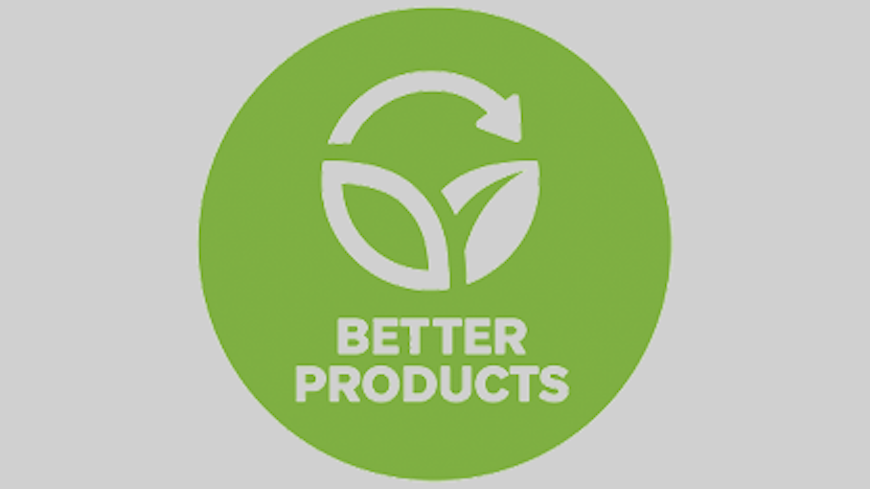
The Warehouse better products logo
On the other side was an image of two leaves encircled by a green arrow. It was captioned, “Better products”. Next to this image was a scannable QR code. On first impression, the image and QR code looked like they belonged to an independent certification scheme.
However, scanning the QR code takes you to The Warehouse’s website, where you can click to learn more about the “Better products” label. Here, The Warehouse states, “The recycled content comes from plastic bottles or waste polyester textiles.”
The site goes on to clarify that when it makes a recycled claim, “we always support it with a recognised certification like Global Recycle Standard [sic] or our teams gather evidence from suppliers to ensure we can stand behind our claims.”
The verdict: The Warehouse would not substantiate its recycled content claims and risks breaching the Fair Trading Act.
The Warehouse provided documentation to support its claims only after we sent a draft of this article for The Warehouse to comment on. While Consumer NZ may have the power to elicit evidence when we express an intention to publish an article, most consumers don’t.
It’s important that evidence to back up claims be provided willingly and transparently so consumers can make informed decisions.
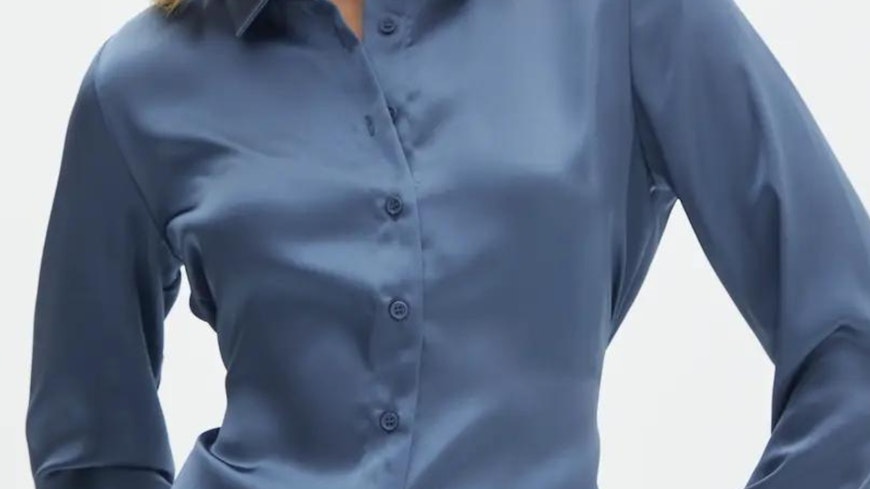
Glassons’ Recycled Satin Tie Back Shirt - $39.99
Recycled content claim: 100% recycled polyester, Global Recycled Standard certified.
Glassons said: When we asked Glassons to back up this claim, it showed us a transaction certificate.
Glassons attached the entire certificate, and we were able to verify that it was legitimate.
However, the Global Recycled Standard requires retailers that make product-specific claims to display four key pieces of information on the swing tag.
Glassons showed one – the percentage of Global Recycled Standard-certified material – but it didn’t show the other three requirements:
the Global Recycled Standard logo
Glassons’ licence number
the responsible certification body (the organisation that issued the transaction certificate).
What’s more, when we asked Glassons to confirm the composition of the garment’s trims, thread and buttons it told us the thread is made from virgin polyester and the buttons from a variety of virgin materials, including styrene, propylene glycol and polyester. These parts of the shirt aren’t reducing dependence on fossil fuels or diverting plastic from going to landfill, which is what Glassons says about its use of recycled polyester on its website.
The verdict: Glassons could back up its recycled content claim when it came to the fabric, but its blanket 100% statement may be misleading, and its labelling doesn’t meet the Global Recycled Standard.
Following our investigation, Glassons told us it would change its labelling to clarify its blanket statements, and that it was in the process of complying with Global Recycled Standard labelling requirements.
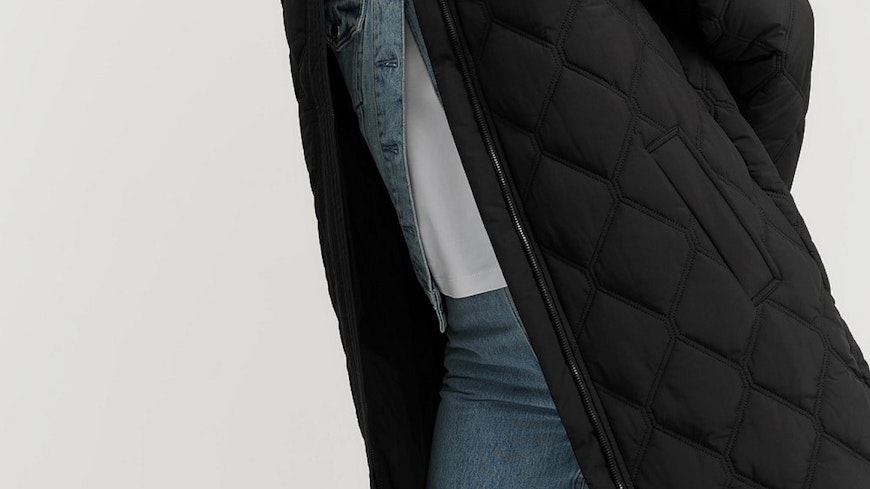
Country Road’s Recycled Polyester Longline Puffer Jacket - $349
Recycled content claim: 100% recycled polyester.
Country Road said: It directed us to a section of its website with further information about how recycled polyester is made and its impact on waterways.
We didn’t think this was adequate substantiation for the company’s claim, so we asked again if it could provide any evidence to back it up. Country Road said, “Our products that utilise recycled polyester by partnering with REPREVE, a company that has developed a fibre created from recycled plastic bottles [sic].”
It referred us to Repreve’s website.
Though Country Road told us it partnered with Repreve, it couldn’t confirm if the jacket was actually made with Repreve’s material. If it was, Country Road didn’t share any evidence to prove it.
The verdict: Country Road could not substantiate its recycled content claim.
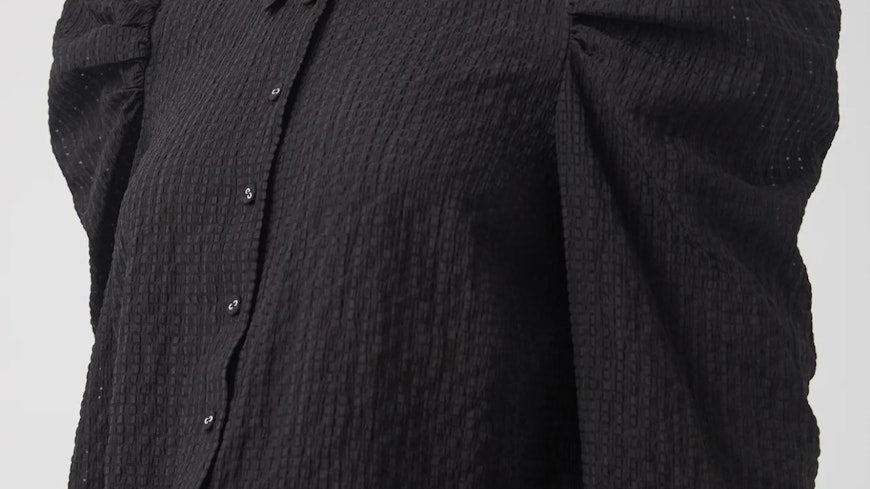
Decjuba Pixie Puff Sleeve Shirt - $119.90
Recycled content claim: 88% recycled polyester.
Decjuba said: For Decjuba to consider something as recycled, it “requires a Global Recycled Standard (GRS) certification from the supplier which is provided to us and saved for our records. GRS being the preferred certification over the Recycled Claim Standard (RCS) certification.”
It provided us with a transaction certificate that we independently verified was legitimate.
More troubling is the way Decjuba describes the shirt. Its website says, “This product is working towards a more responsible future.” One of the product’s call-outs is “DECJUBA Future.”
We asked Decjuba if it was fair to claim a product is working towards a more responsible future if it still contained 12% virgin nylon.
Decjuba said, “We have set a high benchmark for our DECJUBA FUTURE green tier products. We will only classify our products as green tier if the majority of the product, 80% or greater of the fibre has been responsibly sourced (such as being made from recycled content). We want to help our customers understand which products are a more responsible option and have more options available to them, so that they can make better choices.”
Its website also said, “This product is made with responsibly sourced raw materials focusing on water reduction practices and supply chain transparency.”
But when we asked Decjuba where the recycled polyester came from, it said it didn’t know.
“We do not have visibility at this stage as to where our suppliers have sourced this from other than it being post-consumer waste.”
We think using vague language like “DECJUBA Future” and “green tier” is problematic. Decjuba may risk breaching the FTA by potentially greenwashing and misleading customers about the environmental impact of its product and its supply chain visibility.
The verdict: Decjuba could substantiate its recycled content claim, but risks misleading customers with its DECJUBA Future label.
We think detecting greenwashing is getting harder
Our sweep revealed some blatantly obvious examples of greenwashing.
The Warehouse fell short of its journey “to make sustainable living easy and affordable for everyone” when it wouldn’t back up its claims. Country Road’s failure to substantiate claims risked breaching the FTA and jeopardised its own “journey” towards circularity.
But our sweep also showed that figuring out if something is greenwashing isn’t always easy. Greenwashing is getting harder to detect, and not because it’s on the decline. Instead, we found that misleading conduct and unsubstantiated claims were often hidden below the surface, masked by legitimate certifications and statements that retailers could back up.
The certifications and statements are enough that even a savvy consumer could get the impression that a particular garment might be OK for the planet. A deeper dive might show that despite certifications, retailers are still at risk of breaching the law and their valued customers’ trust.
Unfortunately, the days of vague and meaningless claims like “planet-friendly” pants or “earth-conscious” tops don’t look like they’ve been replaced by retailers doing the right thing. Instead, we found claims that seem fair at first, but upon inspection, fall apart.
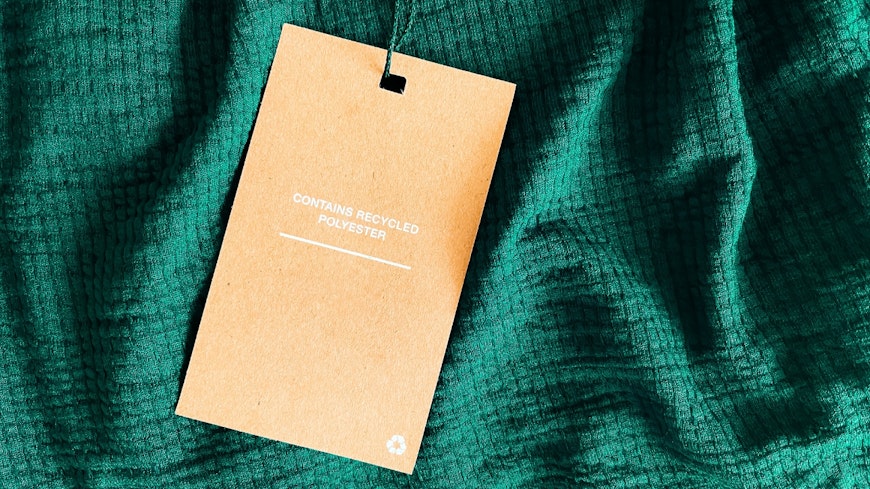
Recycled polyester isn’t a silver bullet
Even though it’s “recycled”, is recycled polyester really better for the planet? Or for New Zealand?
A spokesperson for the Ministry for the Environment said it was positive businesses are increasing their use of recycled materials, but recycled polyester couldn’t fix our textile waste problems on its own.
“We still need to consider ways to reduce our consumption overall,” the spokesperson said.
We should also consider recycled polyester’s impact on the environment.
“Recycled polyester products will still be a concern in terms of leakage of microplastics through washing and what happens with the garments at their end-of-life. There are limited end-of-life solutions for textiles unsuitable to donate either in New Zealand or globally,” the spokesperson said.
Ultimately, most recycled polyester garments are at risk of putting a burden on our landfills and waterways, rather than alleviating New Zealand’s textile waste problem.
Glossary
Textile Exchange
A not-for-profit organisation that describes itself as driving change in the textile industry by providing “tools, resources and initiatives”. These include the Global Recycled Standard and the Recycled Claim Standard.
Global Recycled Standard
The Global Recycled Standard is a product standard developed by Textile Exchange to “boost the use of recycled materials”. For a textile or garment to be certified under the standard it must contain a minimum of 20% recycled content. A retailer can use the Global Recycled Standard label if a certified garment contains at least 50% recycled content but must follow labelling guidelines.
A product must also meet extra environmental and social requirements in order to be eligible for certification. The certification “makes sure the identity of the recycled content is maintained from feedstock to final product”.
Recycled Claim Standard
The Recycled Claim Standard is a product standard also developed by Textile Exchange. It has a lower threshold than the Global Recycled Standard, applying to certified products containing 5% or more recycled content.
Transaction certificate
When a Global Recycled Standard or Recycled Claim Standard certified product is sold to another party in the supply chain, a transaction certificate is issued by an independent third party to verify the products involved are certified. Legitimate transaction certificates must contain some way to independently verify the certificate’s origins. In many cases this is a scannable QR code.
Repreve
Repreve is a manufacturer of recycled fibres. It says the fibres are made from plastic bottles, giving them “a second life” and “keeping them out of oceans and landfills”.
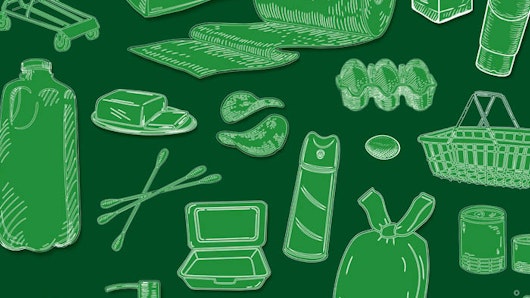
Help stop greenwashing in Aotearoa
We need your help to call out dodgy 'green’ claims.
